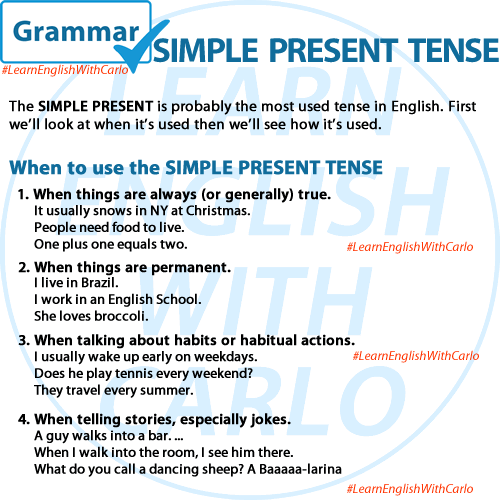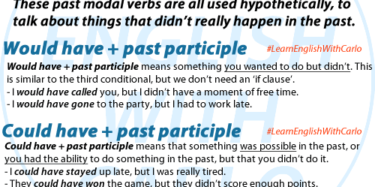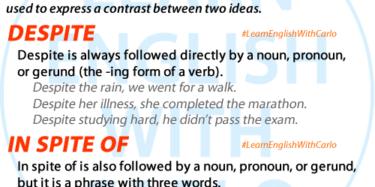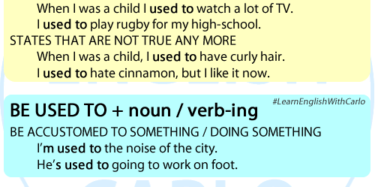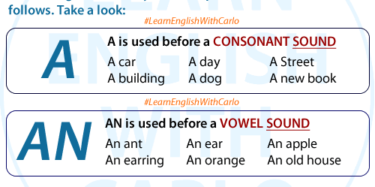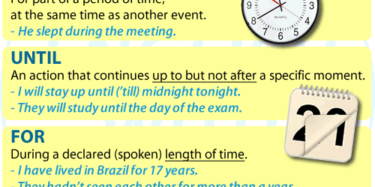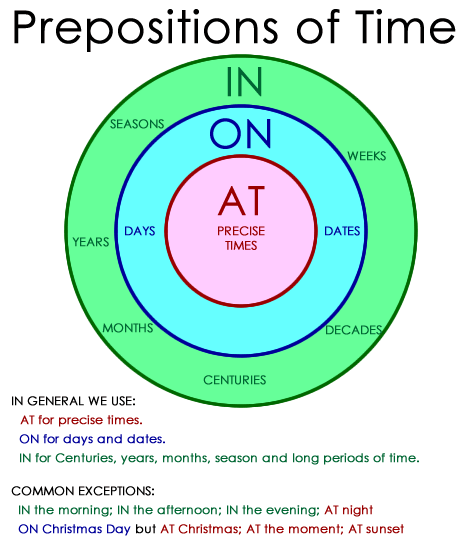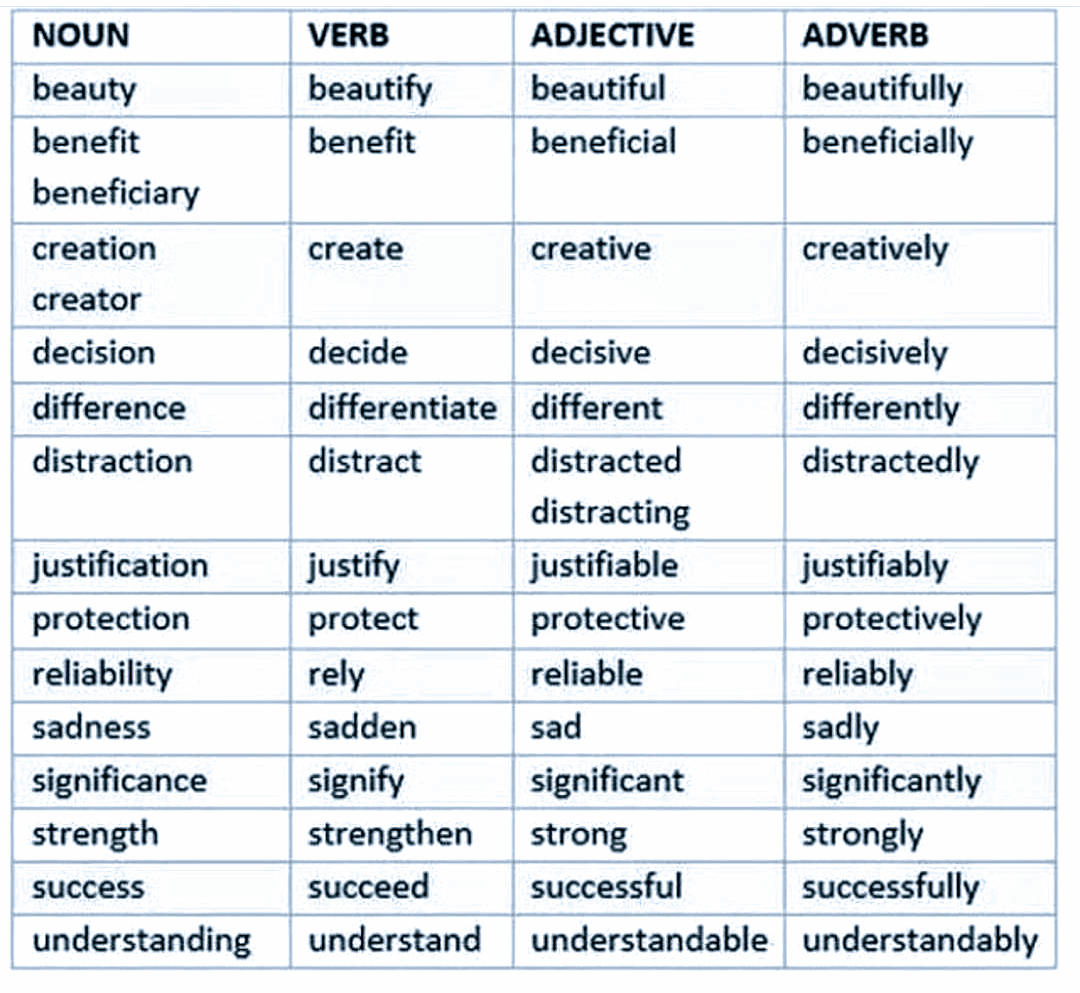Welcome to Learn English With Carlo
Permanent link to this article: https://englishyourway.com.br/
GRAMMAR – Either & Neither
GRAMMAR – Either & Neither Either refers to one of two things or people. Either is always used with a singular verb. Either … or is a correlative conjunction used to connect two things which are the same types, phrases, clauses or words. Neither makes a negative statement about two things or people. Neither …
GRAMMAR – SIMPLE PRESENT TENSE
The SIMPLE PRESENT is probably the most used tense in English. First, we’ll look at when it’s used then we’ll see how it’s used. When to use the SIMPLE PRESENT TENSE 1. When things are always (or generally) true.It usually snows in NY at Christmas.People need food to live.One plus one equals two. 2. When …
Woulda, Coulda, Shoulda – What Does It Mean?
You may have heard native English speakers use phrases like woulda, coulda, or shoulda. But what do they mean? These are informal, spoken forms of would have, could have, and should have. These past modal verbs are used to talk about things that didn’t happen, but that we imagine or wish had been different. Let’s …
DESPITE vs. IN SPITE OF
Both “in spite of” and “despite” mean that something happens even though there is something that might prevent it. They are used to express a contrast between two ideas. Structure Key Points to Remember Examples with Explanations Practice Exercise Ask your students to rewrite sentences using “in spite of” and “despite”: Visual Aid Create a …
The Difference Between “Used to” and “Would”
When talking about past habits or repeated actions, learners of English often encounter two phrases: “used to” and “would.” While these two expressions have similarities, they are not interchangeable in every context. Let’s explore their meanings, uses, and differences in detail. What Does “Used to” Mean? “Used to” refers to habits, actions, or states that …
GRAMMAR – (be) used to
In English, expressions like “used to” and “be used to” can be confusing because they look similar but have distinct meanings and uses. This guide will help you understand the difference and use them correctly. What Does “Used To” Mean? “Used to” is used to talk about habits, actions, or states that were true in …
A vs. AN: Indefinite Articles
Both A and AN are indefinite articles in English, and they mean exactly the same thing. They are used before singular, countable nouns when you are not referring to a specific item. However, the choice between A and AN depends entirely on the sound of the word that follows—not necessarily the first letter of that …
GRAMMAR – Prepositions of Time
DURING, UNTIL, SINCE, and FOR Prepositions can sometimes be tricky to use correctly, especially when they refer to time. Let’s explore the nuances of DURING, UNTIL, FOR, and SINCE, along with deeper explanations and examples to make their usage clearer. DURING Definition: Refers to a specific period of time when something happens, or indicates that …
PREPOSITIONS: of Time – In, on, at
Understanding prepositions of time can be tricky, but they’re essential for clear and accurate communication. Let’s break down the use of “in,” “on,” and “at” with examples to make them easier to grasp. 1. IN Use “in” for longer periods of time, such as months, years, centuries, and long periods: 2. ON Use “on” for …
WORD FORMS
Welcome to our guide on how words can take different forms as nouns, verbs, adjectives, and adverbs! Many words in English change form depending on their role in a sentence, and understanding these transformations is key to mastering grammar and building vocabulary. Here you’ll find tables that show how specific words change across these categories, …



